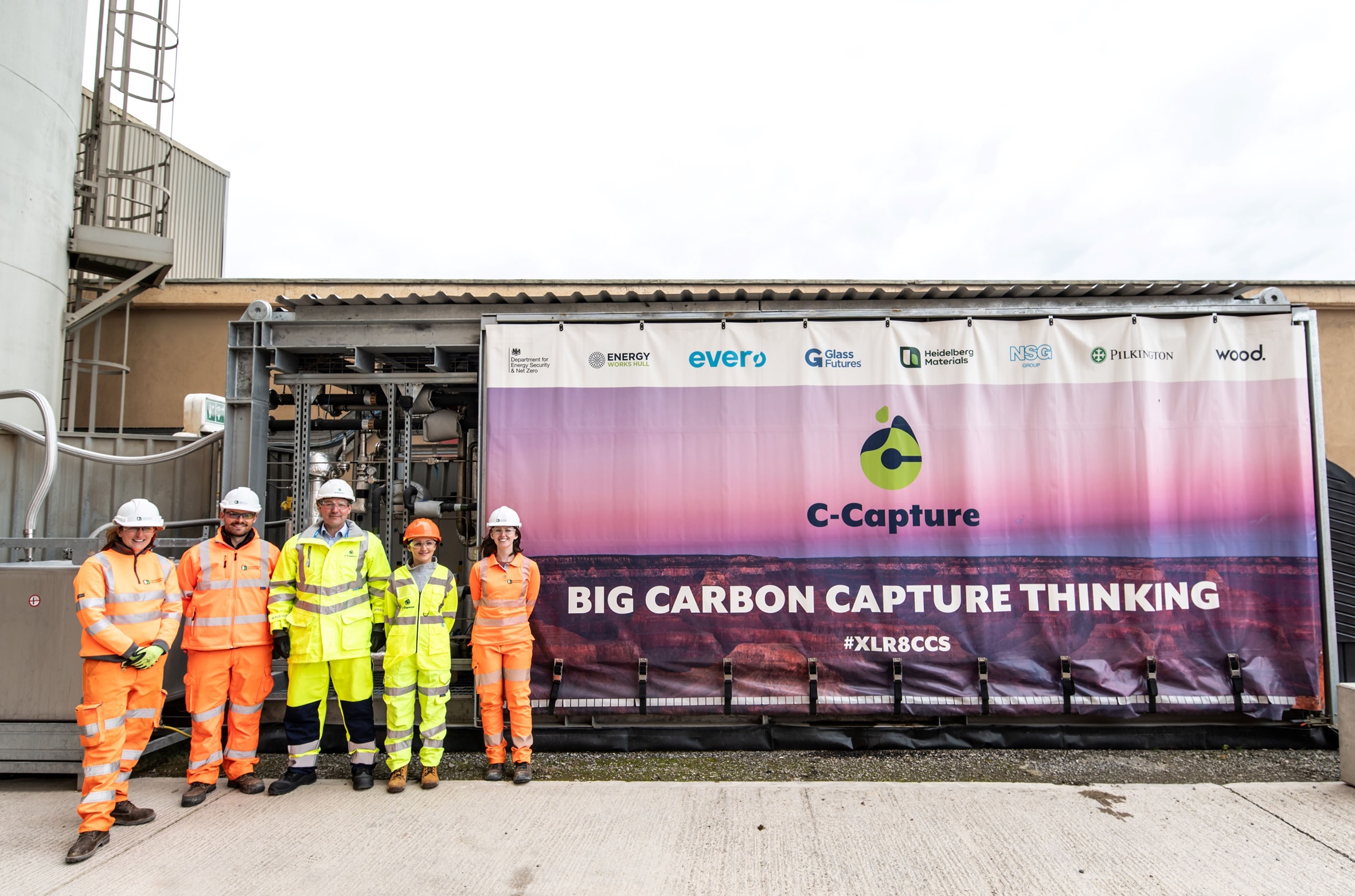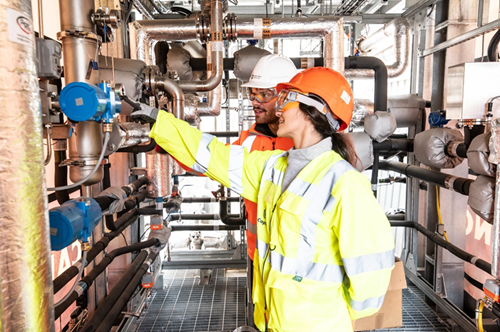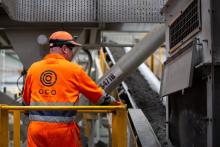
Utilising C-Capture's innovative solution for industrial decarbonisation, the trial forms part of the company's national project, XLR8 CCS – Accelerating the Deployment of a Low-Cost Carbon Capture Solution for Hard-to-Abate Industries. Working with project partners across the UK, C-Capture's XLR8 CCS project will demonstrate that a low-cost carbon capture solution is a reality for difficult-to-decarbonise industries in the race to net zero.
A carbon capture solvent compatibility unit (CCSCU) – designed and built by C-Capture and XLR8 CCS project partner Wood – is now installed and operating at the Heidelberg Materials cement plant. The unit will prove the ability of C-Capture's proprietary carbon capture technology to remove CO2 from the flue gas emissions produced during the cement manufacturing process.
Based on fundamentally different chemistry to other commercially available carbon capture approaches, C-Capture's technology does not rely on the use of amines offering a lower cost and environmentally benign solution. It is also extremely robust and able to withstand the challenging flue gases produced by hard-to-abate sectors.
XLR8 CCS demonstrates the compatibility of C-Capture's carbon capture technology with three difficult-to-decarbonise industries: energy from waste, cement, and glass manufacturing. A total of six carbon capture trials will be delivered across these industries as part of the project. CCSCUs are being deployed at sites owned by project partners, including Heidelberg Materials, Energy Works Hull, Glass Futures, and Pilkington UK, which are part of NSG Group. Project success will see C-Capture and its project partners well-placed for the deployment of commercial-scale carbon capture facilities across the three industries by 2030, which could capture millions of tonnes of CO2 per year.

XLR8 CCS has already achieved the UK's first demonstration of a carbon capture technology within the mainstream commercial glass manufacturing industry with a trial at Pilkington UK's glass manufacturing site in St Helens currently underway. XLR8 CCS'sCCS's progress in demonstrating carbon capture capability within hard-to-abate sectors was also highlighted as part of roundtable on accelerating decarbonisation, last month. The event, organised by C-Capture in connection with the XLR8 CCS project, was attended by Minister for Energy Efficiency and Green Finance, Lord Callanan, and leading industry representatives from a range of sectors.
Lord Callanan said: "It was a privilege to hear from leading UK carbon capture pioneers – these discussions are essential in our collective efforts to roll out innovative technologies to decarbonise industries.
"We are building a world-leading carbon capture industry in the UK – backed by up to £20 billion – that will help meet our net zero targets, support skilled jobs in our industrial heartlands and bring economic growth to the country."
Tom White, CEO, C-Capture, said: "Decarbonising industry is one of the most pressing global issues. C-Capture's XLR8 CCS project is a critical step in the race to net zero as we work with our innovative technology and leading industry partners to demonstrate that an affordable carbon capture solution is a reality – even for industries that are difficult to decarbonise. We are incredibly proud to be working with our project partners who have strong commitments to decarbonisation and are early adopters of novel carbon capture technology."
Simon Willis, CEO, Heidelberg Materials UK, said: "Carbon capture is a critical part of our strategy to decarbonise cement production and essential if we are to reach net zero and help our customers achieve their own decarbonisation goals.
"Our venture with C-Capture is another example of our commitment to developing new technologies and, if successful, has the potential to be rolled-out at other sites across the Heidelberg Materials Group."
XLR8 CCS is funded with £1.7m from the Department of Energy Security and Net Zero's £1 billion Net Zero Innovation Portfolio. The funding is part of the £20 million Carbon Capture, Usage and Storage (CCUS) Innovation 2.0 programme aimed at accelerating the deployment of next-generation CCUS technology in the UK. Additional private sector contributions support a £2.7 million total for this multi-industry project.
XLR8 CCS builds on C-Capture’s work in demonstrating the benefits of the company’s carbon capture technology in other essential industries following the successful completion of pilot plants on biomass-fired power, biogas and landfill gas upgrading applications.









